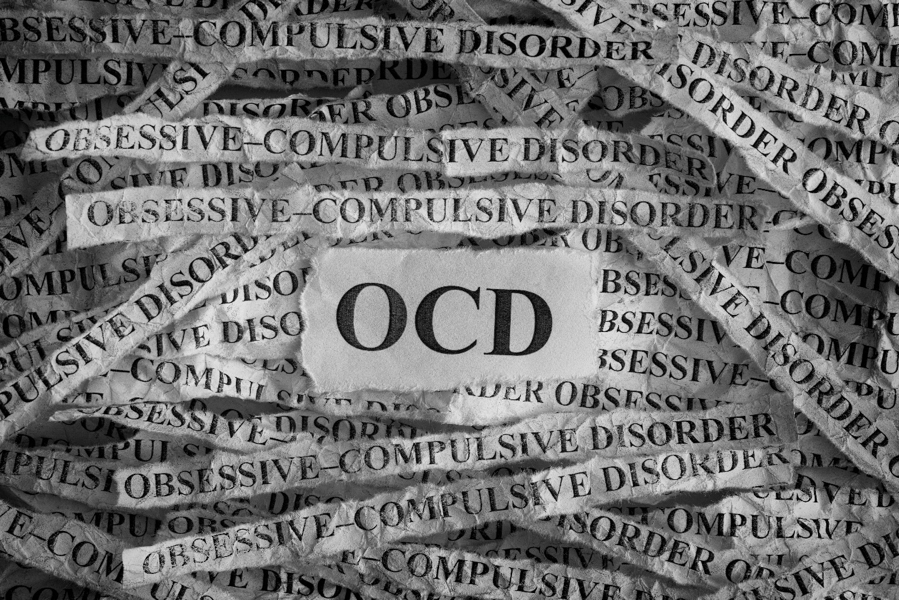Defining Anxiety
- Definition—Anxiety can be defined as an unpleasant affective (mood) experience marked by a significant degree of apprehensiveness about the potential appearance of aversive or harmful events.
- Anxiety is among one of the most common precipitants motivating people to seek medical or psychiatric services.
- An adaptive function of anxiety is to plan and prepare for a challenge or threat. For example, anxiety can help us to motivate ourselves to prepare for an important examination at school or meeting at work. The brain is hardwired to respond with fear when we need to protect ourselves from danger, like moving our car from train tracks when a train is coming.
When anxiety becomes out-of-control
- Anxiety is more problematic when it interferes with our ability to function at work, at school, and in social situations.
- The intensity (strength), frequency (how often it occurs) and duration (how long it lasts) usually determines whether the individual who is experiencing anxiety feels out-of-control.
- Anxiety can be triggered by external circumstances (like losing a loved one, starting a new job or going sky-diving) or it can occur out-of-the-blue for no apparent reason (like panic attacks).
The Role of Genetics and Neurobiology
- Most researchers agree that family history is the factor most strongly correlated with anxiety (do you have a family member or parent who also suffers from anxiety?).
- Neurobiological research (concerned with the chemical functioning of the brain) demonstrates that inappropriate serotonin neurotransmission may be the main neurochemical disturbance. Have you ever heard of Prozac or Paxil? Those medications are SSRIs—they target the part of the brain that is shown to be associated with anxiety and depressive states.
Types of Anxiety Disorders
- Panic Disorder—characterized by repeated, unexpected panic attacks, seemingly “out-of- the-blue.”
- Agoraphobia—A fear of situations that seem restrictive or difficult to escape (may lead to confining oneself to home because it feels like the only “safe place”),
- Social Phobia—A fear of situations whereby the person fears that they are the object of scrutiny or attention by others.
- Generalized Anxiety Disorder—excessive, unreasonable worries about a variety of issues.
- Separation Anxiety Disorder—often seen in children, separation from a caregiver or parent leads to behaviors like clinging to parents excessively or refusing to sleep without the parent being present.
Tips to overcome anxiety
- Learn relaxation techniques. Use deep breathing to calm your body’s physiological response to stress and anxiety.
- Eat well-balanced meals. Do not skip any meals. Do keep healthful, energy-boosting snacks on hand.
- Limit alcohol and caffeine, which can aggravate anxiety and trigger panic attacks.
- Get enough sleep. When stressed, your body needs additional sleep and rest.
- Exercising daily not only helps you feel good and maintain your health, but is an effective release for anxiety.
- Count to 10 slowly. Repeat, and count to 20 if necessary.
- Do your best. Instead of aiming for perfection, which isn’t possible, be proud of however close you get.
- Accept that you cannot control everything. Put your stress in perspective: Is it really as bad as you think?
- Welcome humor. A good laugh goes a long way.
- Maintain a positive attitude. Make an effort to replace negative thoughts with positive ones.
- Get involved. Volunteer or find other ways to be active in your community, which creates a support network and gives you a break from everyday stress.
- Learn what triggers your anxiety. Is it work, family, school, or something else you can identify? Write in a journal when you’re feeling stressed or anxious, and look for a pattern.
- Talk to someone. Tell friends and family you’re feeling overwhelmed, and let them know how they can help you. Talk to a physician or therapist for professional help.
Helpful Resources
When the anxiety and stress responses interfere with your ability to function effectively, whether it’s at work, at home or at school, it may mean that you need to consult with a professional. Below are additional resources that aim to provide help:



